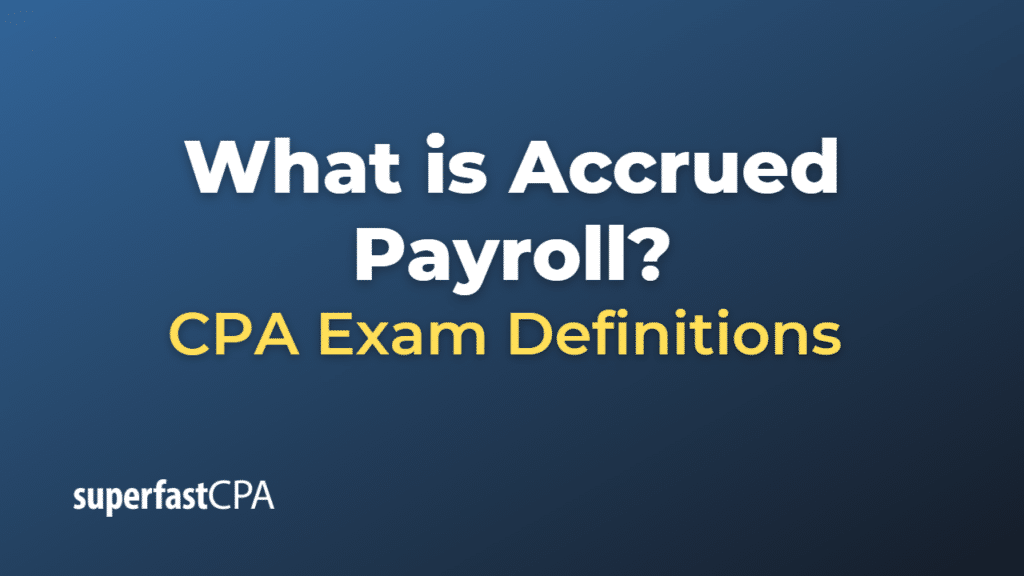Accrued Payroll
Accrued payroll refers to the wages, salaries, and other employee compensation costs that have been earned by employees but have not yet been paid by the company. Accrued payroll is a type of accrued liability and is recorded on a company’s balance sheet under the liabilities section, typically as “Wages Payable,” “Salaries Payable,” or a similar account.
In accrual accounting, expenses are recognized when they are incurred, not when they are paid. As such, if an employee works during an accounting period but will be paid in the subsequent period, the company must record the employee’s earned wages or salary as an accrued payroll liability at the end of the accounting period.
For example, let’s assume a company has a biweekly payroll schedule, and its accounting period ends on December 31st. The last payroll was paid on December 24th, and the next payroll will be paid on January 7th. Employees worked from December 25th to December 31st, but their wages for this period have not yet been paid.
To account for the accrued payroll, the company would record a journal entry at the end of the accounting period, debiting the relevant expense account (e.g., “Wages Expense” or “Salaries Expense”) and crediting the corresponding liability account (e.g., “Wages Payable” or “Salaries Payable”).
Suppose the total wages earned by employees during the December 25th-31st period amount to $10,000. The company would record the following journal entry on December 31st:
Debit: Wages Expense – $10,000 Credit: Wages Payable – $10,000
This entry ensures that the company recognizes the payroll expense in the financial statements for the appropriate accounting period, adhering to the matching principle and providing an accurate picture of its financial health for management, investors, and other stakeholders.
Example of an Accrued Payroll
Let’s consider a hypothetical example to illustrate the concept of accrued payroll.
Imagine a company called “ABC Corporation” that follows the accrual basis of accounting and has an accounting period that ends on December 31st. ABC Corporation pays its employees on a biweekly basis, with the last payday in December falling on the 24th and the next payday scheduled for January 7th. Employees worked from December 25th to December 31st, but their wages for this period have not yet been paid.
To account for the accrued payroll, ABC Corporation needs to estimate the total wages earned by its employees during the December 25th-31st period and record it as an accrued liability at the end of the accounting period.
Let’s assume that the total wages earned by the employees during this 7-day period are $15,000. ABC Corporation would record the following journal entry on December 31st:
Debit: Wages Expense – $15,000 Credit: Wages Payable – $15,000
This journal entry recognizes the wages expense incurred during the accounting period and records the obligation to pay the accrued payroll on the next payday, January 7th.
By recording the accrued payroll, ABC Corporation ensures that its financial statements accurately reflect its financial performance and obligations for the accounting period, providing a clearer picture of its financial health for management, investors, and other stakeholders.













